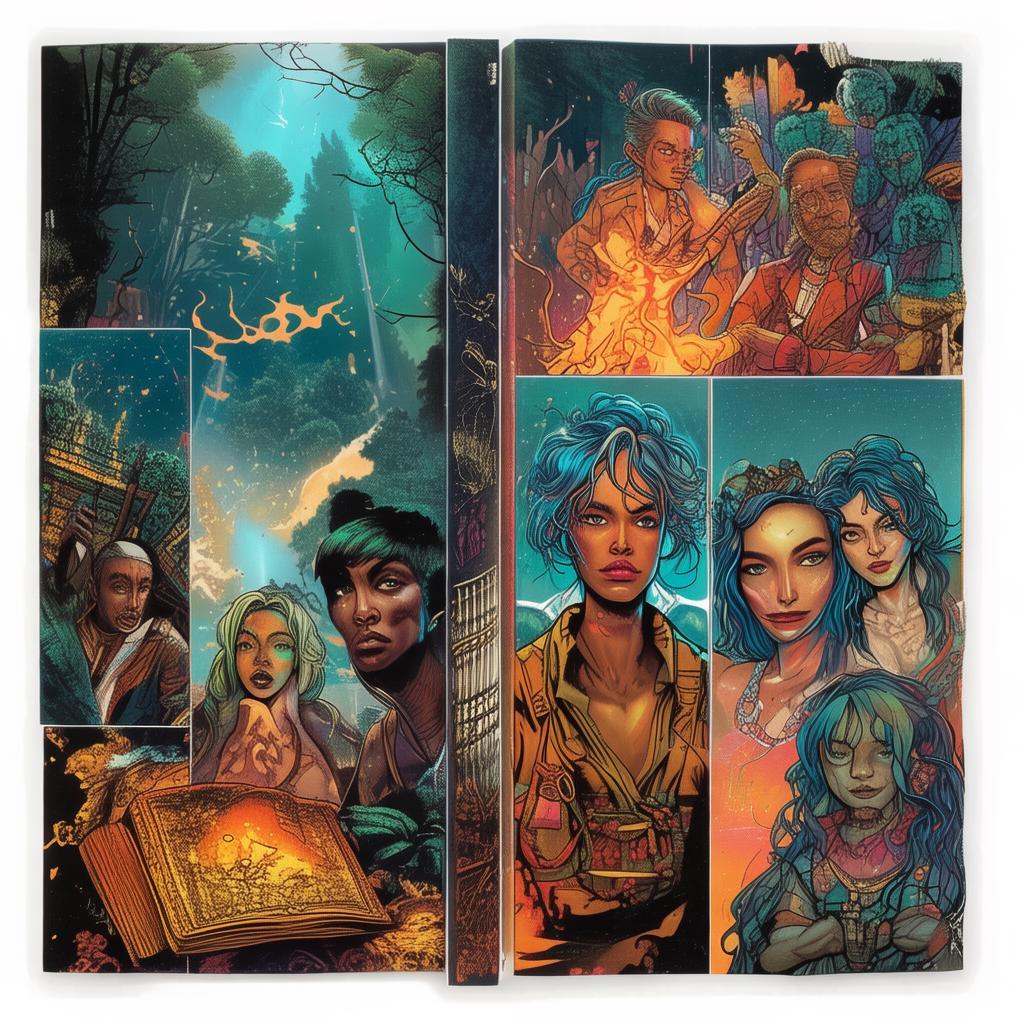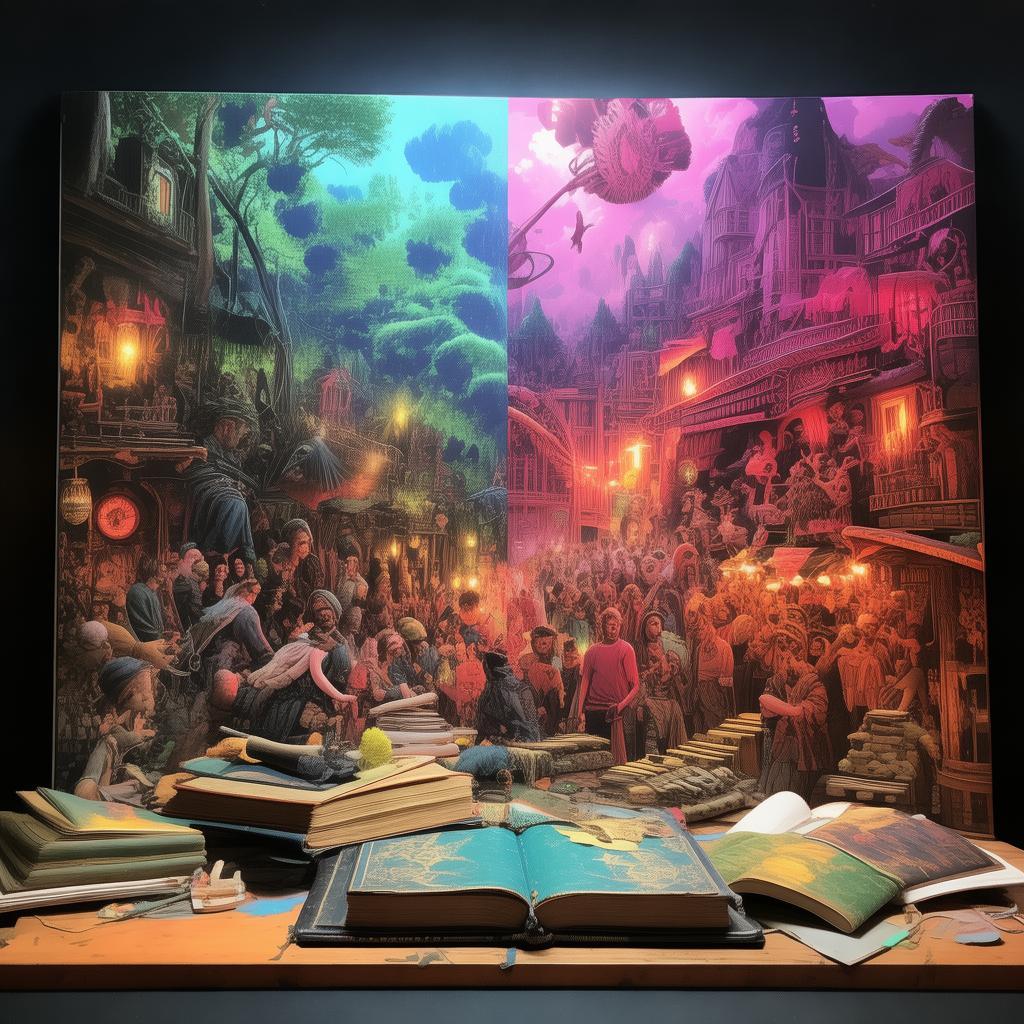The Verdict of the Last Word: A Rhetorical Showdown
In the heart of the bustling city of Euphoria, where the echoes of the spoken word were as potent as any weapon, stood the grand hall of the Rhetorical Rumble, a place of legend where the best of the best converged to wage battles of wits and will. This was the year of the grandest Rumble yet, a tournament that promised to crown a new champion, one who would be spoken of in hushed tones for generations to come.
The stage was set, and the crowd murmured with anticipation, their eyes fixed upon the two finalists: the charismatic but fiery Aria, whose words could incite passion or soothe the stormiest seas, and the stoic, yet enigmatic Silas, whose voice carried the weight of ancient wisdom and unyielding resolve.
The story began with Aria, the daughter of the legendary orator, Elara. She had been groomed from birth to carry on her mother's legacy, and the weight of that expectation bore heavily upon her shoulders. She had studied under the tutelage of the greatest orators of her time, her voice a testament to her dedication and talent. But in her heart, she knew that she was destined for greatness, not just to echo her mother's words but to forge her own path.
Opposing her was Silas, the son of a forgotten orator, a man who had spent his life in the shadows, his skills honed in solitude. He had come to the Rhetorical Rumble not for glory or recognition but for a chance to prove his worth, to make his father's name known once more. His voice was gruff, unpolished, but it held the power to move mountains, a force of nature that could not be ignored.
The opening salvo was a clash of wills. Aria began with a tale of love and loss, her voice soaring with such emotion that the very air seemed to crackle around her. She spoke of a love that transcended time, a bond that could not be broken by the hands of fate. Silas responded with a narrative of resilience and redemption, his voice deep and sonorous, telling of a man who had been stripped of everything only to reclaim his humanity.

As the battle raged on, the crowd was captivated, their cheers and jeers a testament to the intensity of the duel. Aria's words painted vivid pictures, her delivery filled with passion and flair. Silas, however, chose a different path. His narrative was stark, his tone measured, but it struck a chord within the audience, a reminder that sometimes the simplest truth is the most powerful.
The climax came when both orators were asked to speak on the same topic: the essence of what it means to be human. Aria spoke of empathy, of the connections that bind us, and the responsibility we have to care for one another. Silas, in contrast, spoke of the human condition itself, of the struggle to find meaning in a world that seemed to conspire against us.
The crowd was torn, their emotions a whirlwind of confusion and admiration. The judges, seasoned orators themselves, were equally divided. The debate raged on for what felt like an eternity, until at last, the judges announced their decision.
Aria had lost. The crowd gasped in shock. How could this be? Her words were so powerful, her delivery so captivating. But the judges had chosen Silas, not for his skill or talent, but for the depth and truth of his message. He had shown that sometimes, the most profound truths were not found in the beauty of the spoken word, but in its simplicity and honesty.
As Aria left the stage, her eyes glistening with unshed tears, she knew that she had been defeated not by Silas, but by her own expectations. She had come to the Rhetorical Rumble to prove herself, to claim her place in history, but in the end, she had learned that true power lay not in words, but in the message they conveyed.
Silas, on the other hand, stood triumphant, not as a conqueror, but as a truth-teller. He had shown the world that sometimes, the simplest truth is the most powerful, and that in the realm of the spoken word, there are no masters, only students of the human experience.
The Verdict of the Last Word: A Rhetorical Showdown was a tale of passion, conflict, and self-discovery, one that would resonate with the audience long after the final words had been spoken. It was a story that reminded us that the true power of oratory lay not in the voice, but in the message, and that the greatest orators were those who had the courage to speak the truth, even when it was not what the world wanted to hear.
✨ Original Statement ✨
All articles published on this website (including but not limited to text, images, videos, and other content) are original or authorized for reposting and are protected by relevant laws. Without the explicit written permission of this website, no individual or organization may copy, modify, repost, or use the content for commercial purposes.
If you need to quote or cooperate, please contact this site for authorization. We reserve the right to pursue legal responsibility for any unauthorized use.
Hereby declared.









